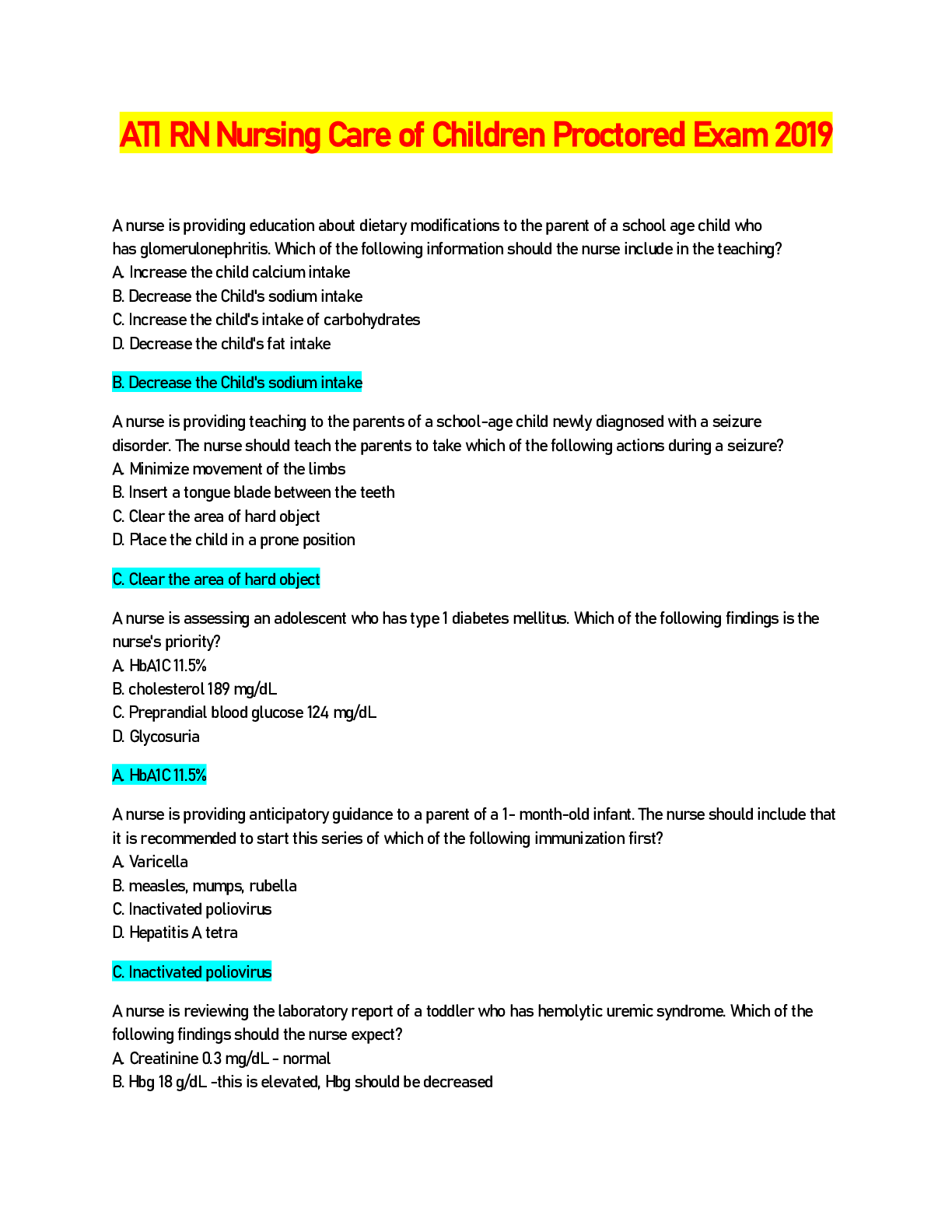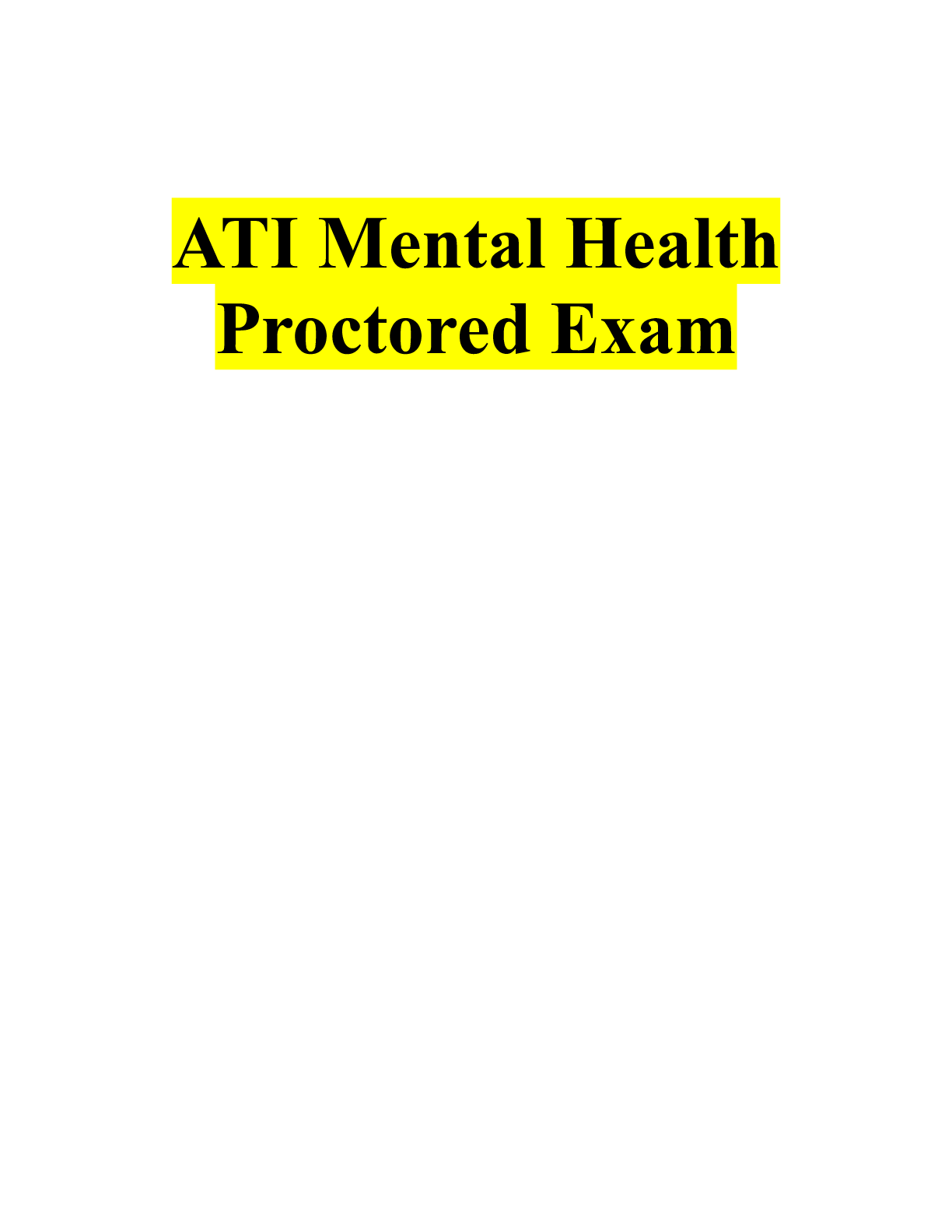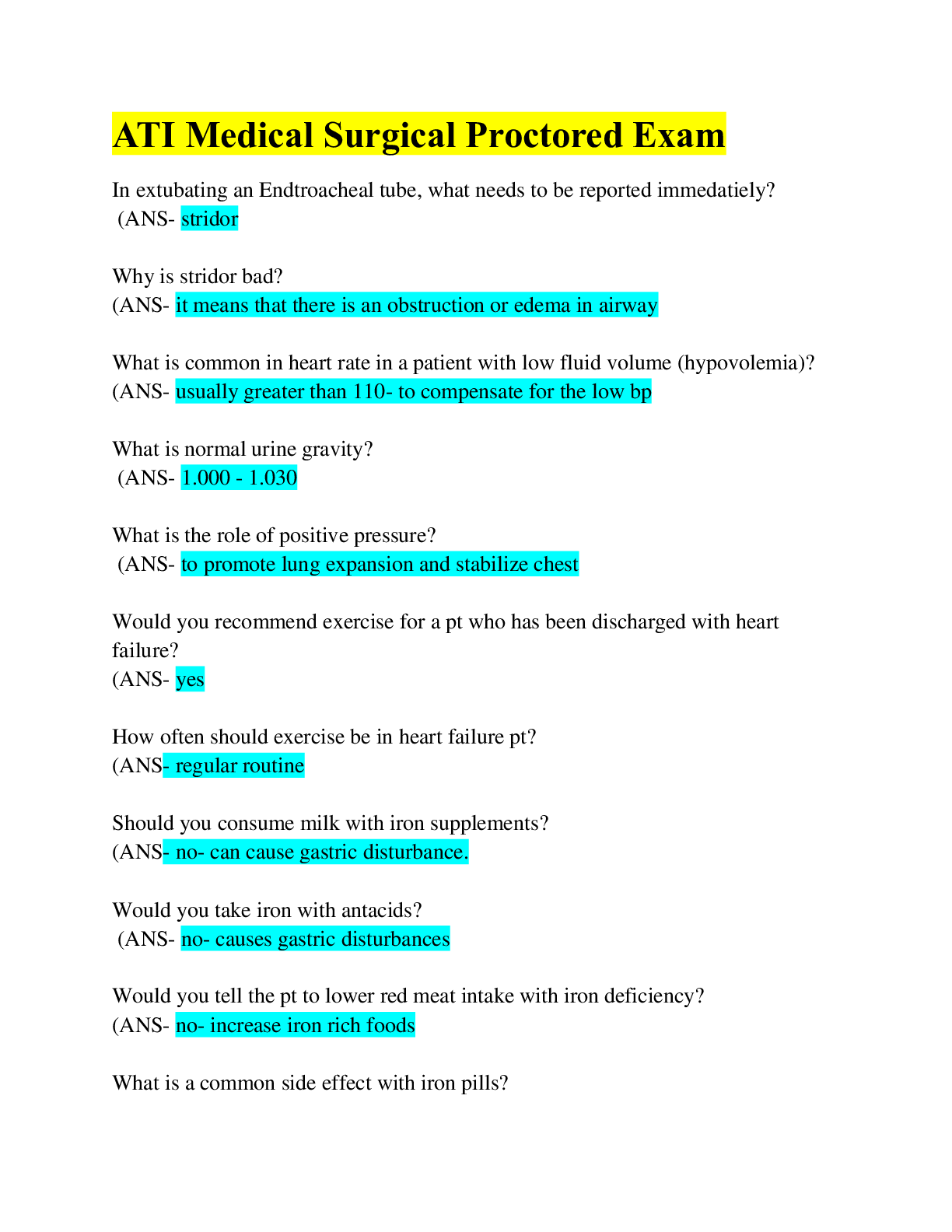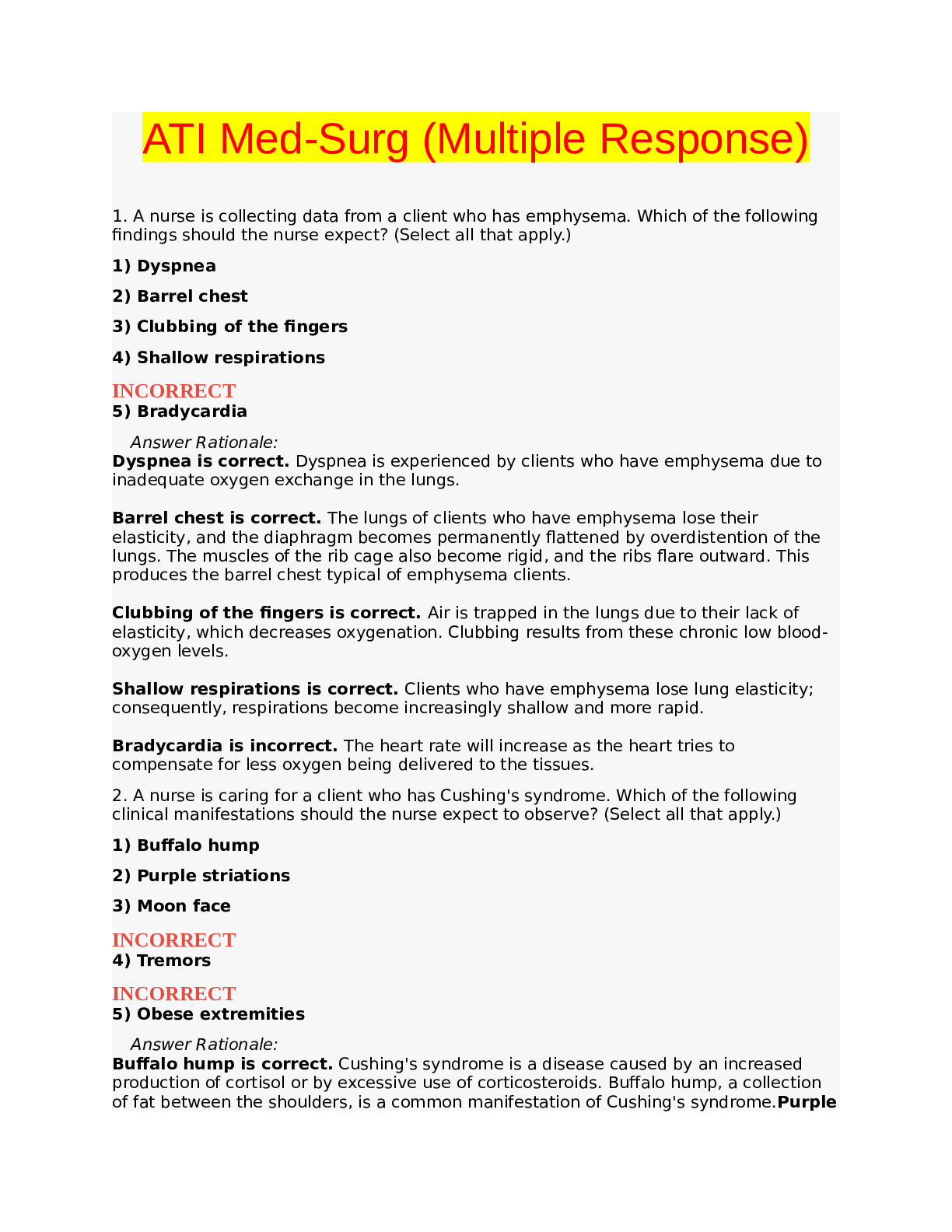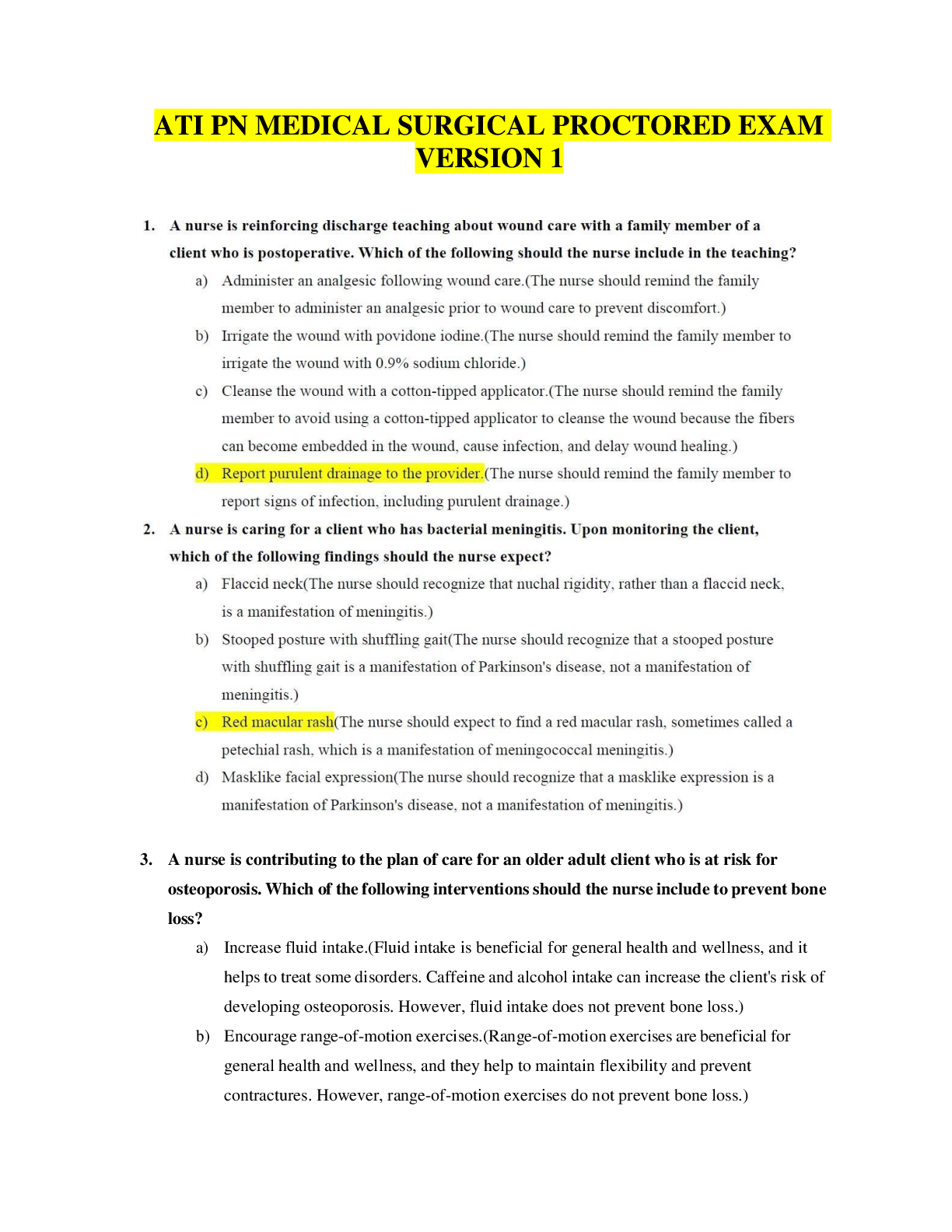Health Care > ATI > ATI Medical Surgical Proctored Exam 2019/ Questions & Answers (All)
ATI Medical Surgical Proctored Exam 2019/ Questions & Answers
Document Content and Description Below
What would you do for wound Evisceration ( removal of internal organs) , Emergency management? (ANS - Saline cover wound What would you do for an ASTHMA emergency management of a bee sting allergi... es? (ANS - Epi Pen Seizures and Epilepsy: Seizure precautions (ANS - During a seizure: 1) Position client on the floor 2)Provide a patent airway 3) Turn client to side 4) Loosen restrictive clothing Cancer treatment options: Protective Isolation (ANS – If WBC drops below 1,000, place the client in a private room and initiate neutropenic precautions. - Have client remain in his room unless he needs to leave for a diagnostic procedure, in that case transport patient and place a mask on him. - Protect from possible sources of infection (plants, change water in equipment daily) - Have client, staff and visitors perform frequent hand hygiene, restrict ill visitors - Avoid invasive procedures (rectal temps, injections) - Administer (neupogen, neulasta) to stimulate WBC production Infection control: Appropriate room assignment (ANS - Standard Precautions: 1. applies to all patients 2. Hand washing a. alcohol based preferred unless hands visually soiled ( then soap and water ) 3. Gloves - when touching anything that has the potential to contaminate. 4. Masks, eye protection & face shields when care may cause splashing or spraying of body fluids Droplet: 1. private room or with someone with same illness 2. masks Airborne: 1. private room 2. masks or respiratory protection devices a. use an N95 respirator for tuberculosis 3. Negative pressure airflow 4. full face protection if splashing or spraying is possible Contact: 1. private room or room with same illness 2. gloves & gowns 3. disposal of infections dressing materials into a single, nonporous bag without touching the outside of the bag TB: Priority action for a client in the emergency department (ANS – -Wear an N95 or HEPA respirator -Place client in negative airflow room and implement airborne precautions -use barrier protection when the risk of hand or clothing contamination exists Immunizations: Recommended vaccinations for older adult clients (ANS - Adults age 50 or older: - Pneumococcal Vaccine (PPSV) - Influenza vaccine - Herpes Zoster Vaccine - Hepatitis A - Hepatitis B - Meningococcal Vaccine Pulmonary Embolism: Risk factors for DVT (ANS – - Long term immobility - Oral contraceptives - Pregnancy - Tobacco use - Hypercoagulabilty - Obesity - Surgery - Heart failure or chronic A-Fib - Autoimmune hemolytic anemia (sickle cell) - Long bone fractures - Advanced age Disorders of the male reproductive system: Complications of continuous irrigation following Trans-urethral Resection (ANS – - Urethral trauma - Urinary retention - Bleeding - Infection Non-modifiable risk factors ( Page 3 ATI ) (ANS – 1) Age 2) Gender 3) Genetics 4) Developmental level Modifiable risk factors ( Page 3 ATI ) (ANS – 1) Smoking 2) Exercise 3) Health education and awareness 4) Nutrition 5) Sex practices [Show More]
Last updated: 2 years ago
Preview 1 out of 63 pages

Buy this document to get the full access instantly
Instant Download Access after purchase
Buy NowInstant download
We Accept:

Reviews( 0 )
$11.00
Can't find what you want? Try our AI powered Search
Document information
Connected school, study & course
About the document
Uploaded On
Jun 06, 2022
Number of pages
63
Written in
Additional information
This document has been written for:
Uploaded
Jun 06, 2022
Downloads
0
Views
100
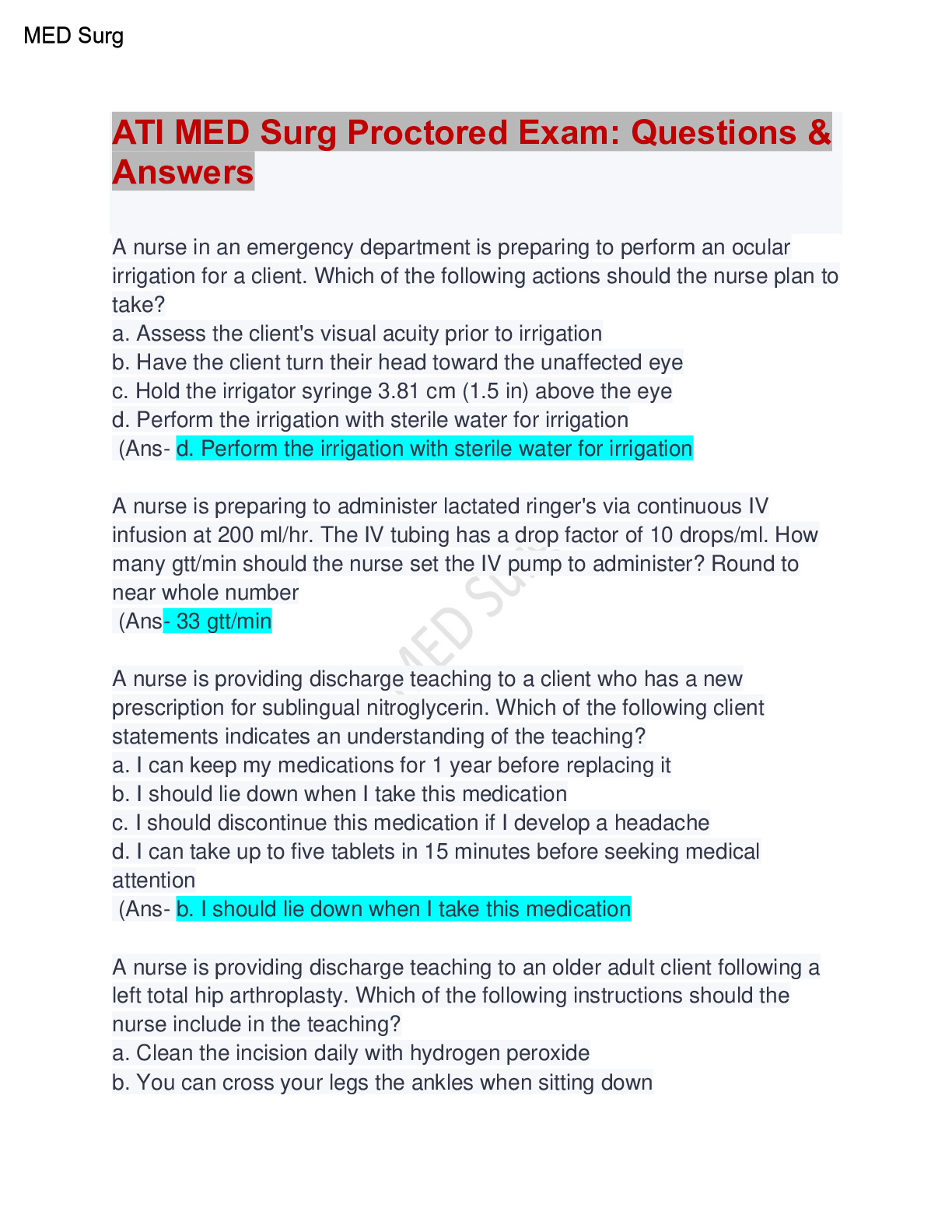






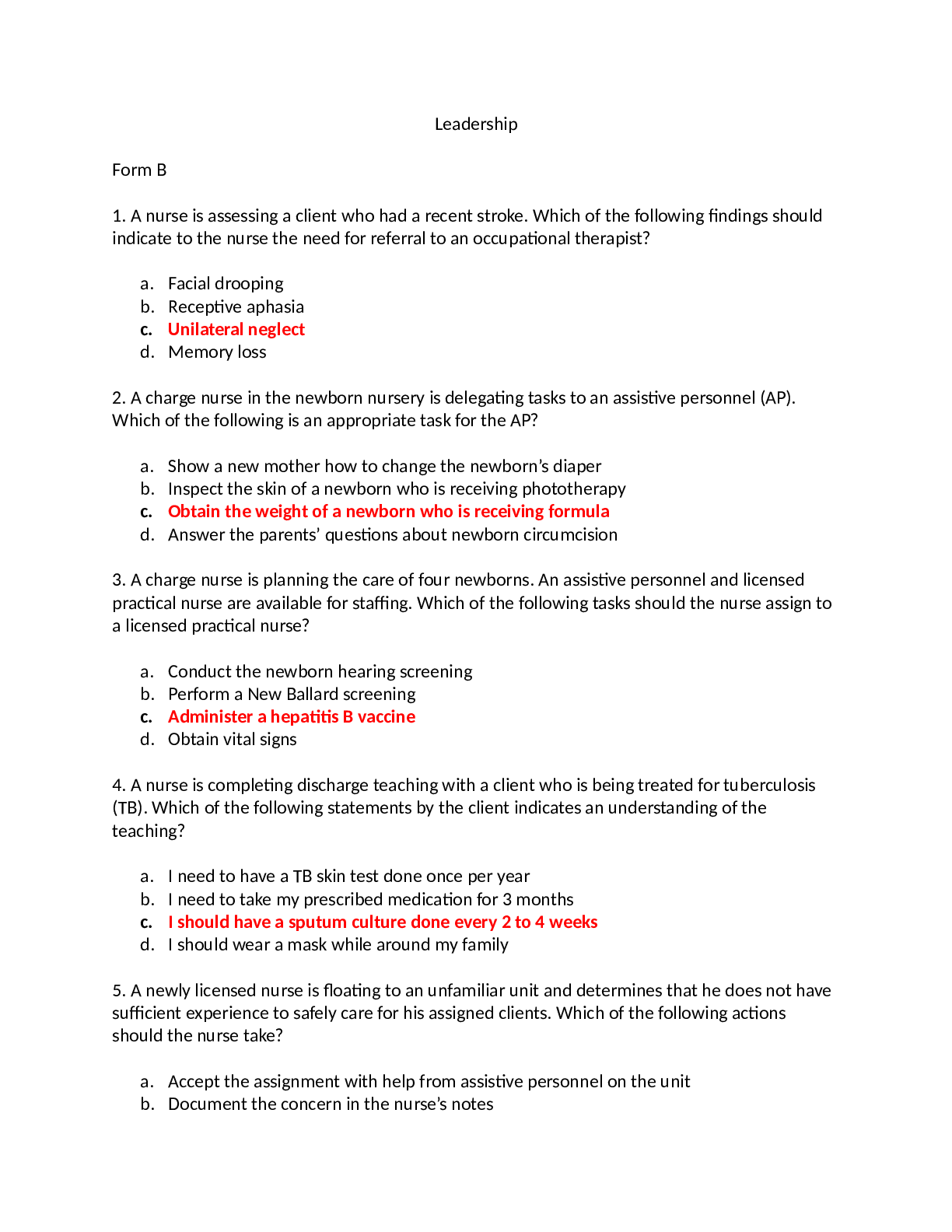








.png)
